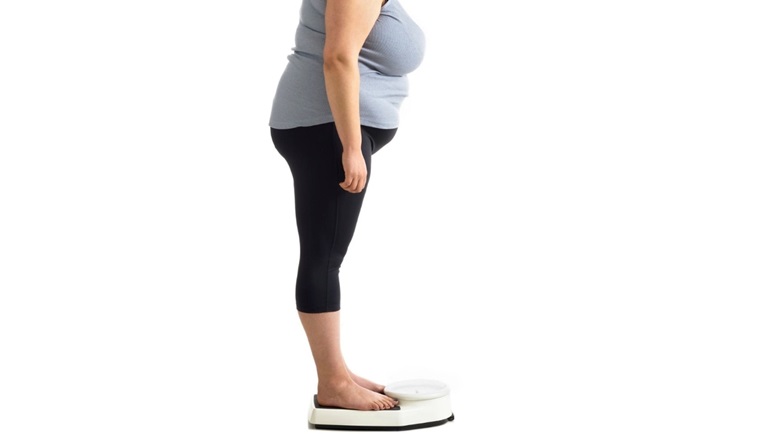Bariatric surgery can help with a range of health problems, from obesity to diabetes. But there are many misconceptions about it that may be keeping you from seeking out this life-changing procedure. In the following article, we’ll discuss some common myths and dispel them for good.
1. Type 2 Diabetes
Insulin is a hormone that is needed for cells to absorb glucose or sugar. People with T2D (type 2 diabetes) may not produce enough insulin, and/or their bodies don’t use it effectively, which results in high blood sugar levels. High blood sugars lead to nerve damage, blindness, kidney disease, and many other problems.
Surgery causes changes in the digestive tract that reduces the amount of food you can eat and decreases hunger. Studies have found that most people became symptom-free from T2D after surgery, while a small portion of those on medications was able to discontinue them.
2. High Blood Pressure
High blood pressure (hypertension) damages arteries and organs throughout the body. Bariatric surgery can decrease blood pressure by 20-30 points, which reduces your chances for heart attack, stroke, kidney failure, dementia, blindness, and death. For example, after a Gastric Sleeve Surgery in Tijuana, Mexico, your kidneys should begin to function better, and the body starts removing salt and excess fluid from the blood.
3. High Cholesterol
Cholesterol accumulates in plaques on the walls of arteries throughout your body, narrowing them and restricting blood flow. This can lead to heart attacks or strokes if not treated. Bariatric surgery lowers total cholesterol and LDL (bad) cholesterol. Without excess fat in the body to make new cholesterol, the liver produces less of it.
This may also interest you: Weight Loss Surgery: How It Works When Diets Fail
4. Gallstones
Gallstones form in your gallbladder when bile contains too much cholesterol or when the ducts are blocked by small stones or hardened bile. Symptoms include stomach pain, nausea, and vomiting. Surgery decreases the amount of cholesterol your body absorbs from food.
5. Osteoarthritis
Osteoarthritis is a degenerative disease that breaks down joints over time. It can cause pain and stiffness in the fingers, back, hips, knees, feet, and spine. Bariatric surgery can relieve arthritis pain by decreasing the amount of food you eat and helping your joints. Studies show that people had significant improvement in their arthritis after surgery.
6. Gout
Gout is a form of arthritis characterized by inflammation and pain in the big toe, ankle, knee, or wrist mainly caused by high uric acid levels in the blood. Studies have shown a significant decrease in serum uric acid levels after surgery.
7. Asthma
Bariatric surgery can improve symptoms of asthma by reducing the amount of excess weight on the chest. This reduces stress on the lungs and respiratory system, making it easier to breathe. Along with other lifestyle changes, surgery has helped many asthma sufferers live a fuller life without medication.
8. Cancer Risks
Obesity has been linked to certain cancers, including endometrial, breast, colon, gallbladder, esophagus, pancreas, thyroid cancer. Surgery can change the body’s hormonal balance, which decreases cancer risk by reducing estrogen levels in women and testosterone levels in men. There are other mechanisms, but it has been found that obesity surgery can decrease your risk for cancer because excess fat leads to excess estrogen, which increases breast tissue growth.
9. Sleep Apnea
Sleep apnea is a disorder that causes breathing to stop for short periods during sleep. This deprives the body of oxygen and can cause other problems such as high blood pressure, heart disease, stroke, diabetes, weight gain, depression, loss of energy, daytime fatigue. Bariatric surgery is the only treatment that has been found to improve sleep apnea over time because it reduces fat in the throat area.
10. Chronic Stomach Problems
Stomach problems, including gastroesophageal reflux disease (GERD), hiatal hernia, indigestion, gas pain, nausea, vomiting, are common complaints among the obese population. Although many medications are available to treat these conditions, they cause side effects such as headache, diarrhea, and more. Bariatric surgery has been found to be the most effective treatment for GERD and is often a cure for those who previously had no relief from medications.
Bariatric surgery provides a life-changing solution for those who are struggling with obesity and the health problems that come along with it. So, suppose you are considering a weight loss surgery and have associated conditions as mentioned in the list above. In that case, you need not worry at all, for the surgery won’t worsen it but rather help you in curing it.


